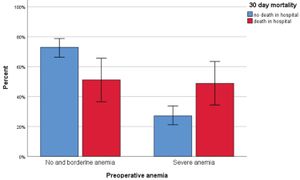The Polish government has taken a clear stance against the EU Migration Pact, with Prime Minister Donald Tusk asserting unequivocally, "Poland will not implement the migration pact nor any projects leading to the forced acceptance of migrants identified by other European countries." This declaration sets the stage for increasing tensions between Warsaw and Brussels over migration issues.
During a press conference, Tusk emphasized the weight of Poland's existing responsibilities, particularly mentioning the large number of Ukrainian refugees the country has welcomed since the start of the war. "Though Ukraine can count on Warsaw's solidarity, the rest of Europe must understand Poland bears these costs and deserves assistance—not additional burdens," he declared. This sentiment reflects Poland's insistence on protecting its national interests amid EU pressures.
On the other hand, the European Union insists compliance with the migration pact is obligatory for member states. Markus Lammert, spokesperson for the European Commission, responded firmly to Tusk's claims, stating, "EU law binds all member states, and the migration pact, as it stands, is now part of this law." He added, though, the pact offers certain flexibilities for countries under significant migration pressure, such as Poland.
Tusk's remarks come after accusations from opposition parties claiming the government made informal agreements during last week’s EU Council meeting. Tusk countered these allegations, insisting there was no discussion on speeding up the implementation of the migration pact. Internal Affairs Minister Tomasz Siemoniak confirmed Tusk's statements, saying, "There was no discussion concerning acceleration, as this was not the main topic of the meeting." This highlights the contentious atmosphere within Polish politics over the migration issue.
Concerns were raised about the potential impact of the migration pact, particularly with Poland's geographical proximity to Belarus and Russia, which have been accused of using migrants as tools for political manipulation against the EU. The European Commission noted Poland's unique circumstances in light of its border situation, as highlighted by Siemoniak. At the same time, EU officials reaffirmed the need for solidarity among member states concerning migration responsibilities.
Political leaders like Marta Wcisło from the opposition have also voiced concerns about the pact requiring revision. Wcisło stated, "Poland has accepted the most war refugees from Ukraine, yet the migration pact does not take this fact seriously enough." This criticism echoes the sentiments of many Poles who seek acknowledgment of their significant humanitarian efforts during the crisis.
Tusk’s defiant tone also signaled potential upcoming clashes with the EU. He proclaimed, "A rebellion against regulations is inevitable! Whether someone within the EU likes it or not, the time has come!" This call for dissent reflects the growing sentiment among some Polish leaders who feel the EU is overstepping its bounds.
Further underlining this point, Mayor of Warsaw and presidential candidate Rafał Trzaskowski remarked, "If we were to bill the EU for the Ukrainian refugees we have taken, they would owe us billions." His comments serve to reinforce the narrative of Poland as both a generous host nation and one facing undue pressure from the EU.
Despite the Polish government’s hard stance, EU representatives are attempting to clarify the pact's provisions. Lammert highlighted the pact's objective to support countries like Poland facing migration challenges, especially those bordering Russia and Belarus. He noted, “The agreement includes provisions allowing for exceptional measures when necessary, to bolster border defenses and manage migration efficiently."
Critics within Poland are concerned about the current government's approach and its potential to isolate the country within the EU framework. The past government's relationship with EU institutions has also been contentious, with accusations of failing to negotiate effectively or leverage Poland's position within the union. According to Wcisło, "The previous administration did not take the necessary steps to protect Poland's interests within the EU migration framework." This history lingers as the current administration navigates its own path among increasingly complex EU dynamics.
Moving forward, Polish officials are expected to maintain their firm resistance to the migration pact, insisting the existing circumstances justify their actions. Minister Siemoniak reiterated this point, asserting, "We oppose the migration pact and will not accept its stipulations concerning the relocation of migrants." This reflects not only Poland’s immediate immigration policies but also broader issues surrounding national sovereignty and EU law.
Through all these discussions, the issue of security remains central for Poland. The Polish governance emphasizes its obligation to protect its borders vigorously. The Polish government articulates its position on the migration pact as not merely political, but as part of its identity and responsibility as a nation. The stance taken by the newly elected government signals possible ideological shifts influencing its foreign and immigration policies going forward.



